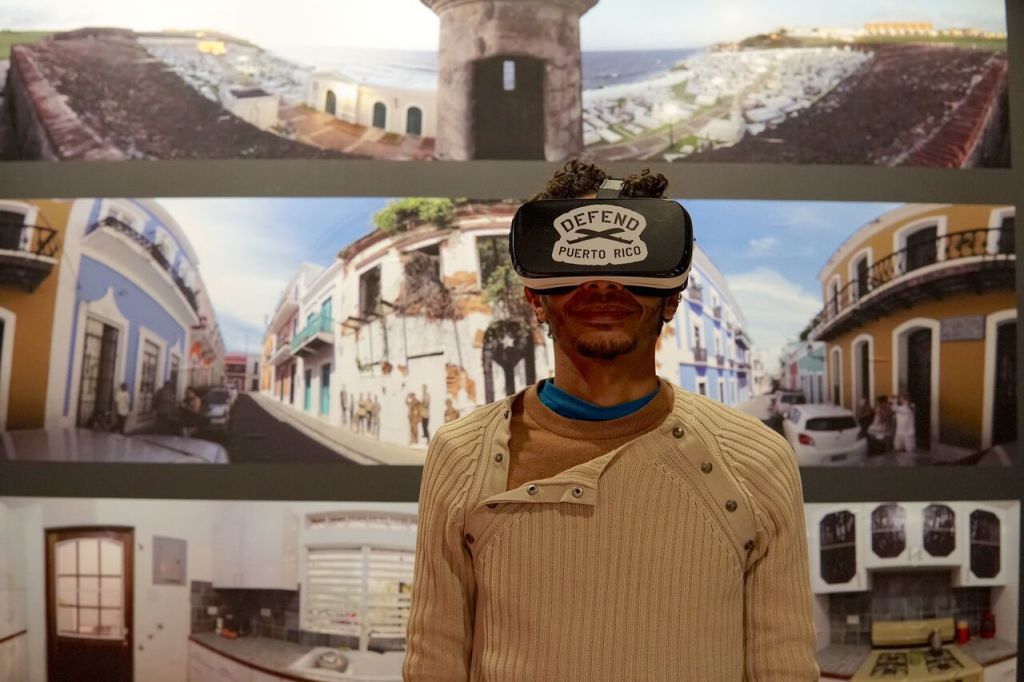
When a group of longtime artistic collaborators from the Puerto Rican diaspora came together nearly two years ago, they found a dearth of reliable stories that represented the Boricua experience in mainstream media. Too often, news coverage belied the political realities of the island or simplified a rich and complex cultural narrative. Indeed, there was rarely discussion of boiling political resistance or the government-debt crisis. The little coverage there was about the Puerto Rico Oversight, Management, and Economic Stability Act (PROMESA), aimed at tackling that debilitating debt, typically failed to include the perspectives of those most affected.
Out of necessity and frustration, the artists—who came from New York, California, and Florida, among other places—decided to travel to the island together, where they formed the Defend Puerto Rico Project (DefendPR), a transmedia collective with a mission to diversify, complicate, and enrich coverage of the Puerto Rican diasporic experience. Over the course of six trips together, DefendPR created a body of new work that took advantage of traditional and emerging media formats and technologies—like 360° video and augmented reality experiences—to illustrate experiences of Puerto Ricans across the diaspora.
The work that resulted is now on view in a six-part exhibition at The Caribbean Cultural Center African Diaspora Institute (CCCADI), a cultural institution in New York City that receives support from the Ford Foundation. The exhibition, aptly titled Defend Puerto Rico, showcases the work of more than 25 artists engaging a vast range of media, including installation, collage, video and even augmented reality experiences. “For decades, people in Puerto Rico have developed innovative and resilient tactics to the challenges that come with being an island without sovereignty,” explained Mikey Cordero, who co-founded Defend Puerto Rico and curated the exhibition at CCCADI. “The DefendPR project has been capturing the many shades of the Puerto Rican resistance well before then, through traditional mediums and new technologies.”
The works on display discuss the wounds of US colonization and the current economic crisis through individual video profiles, animate the stories of organizers on the ground through a complex portrait installation, and re-contextualize political resistance through a wall-sized collage of political posters. Collectively, this body of work aims to create a more complex and honest narrative about Puerto Rico, and foster critical dialogue.
The Defend Puerto Rico exhibition is on view at CCCADI through June 9, 2018.